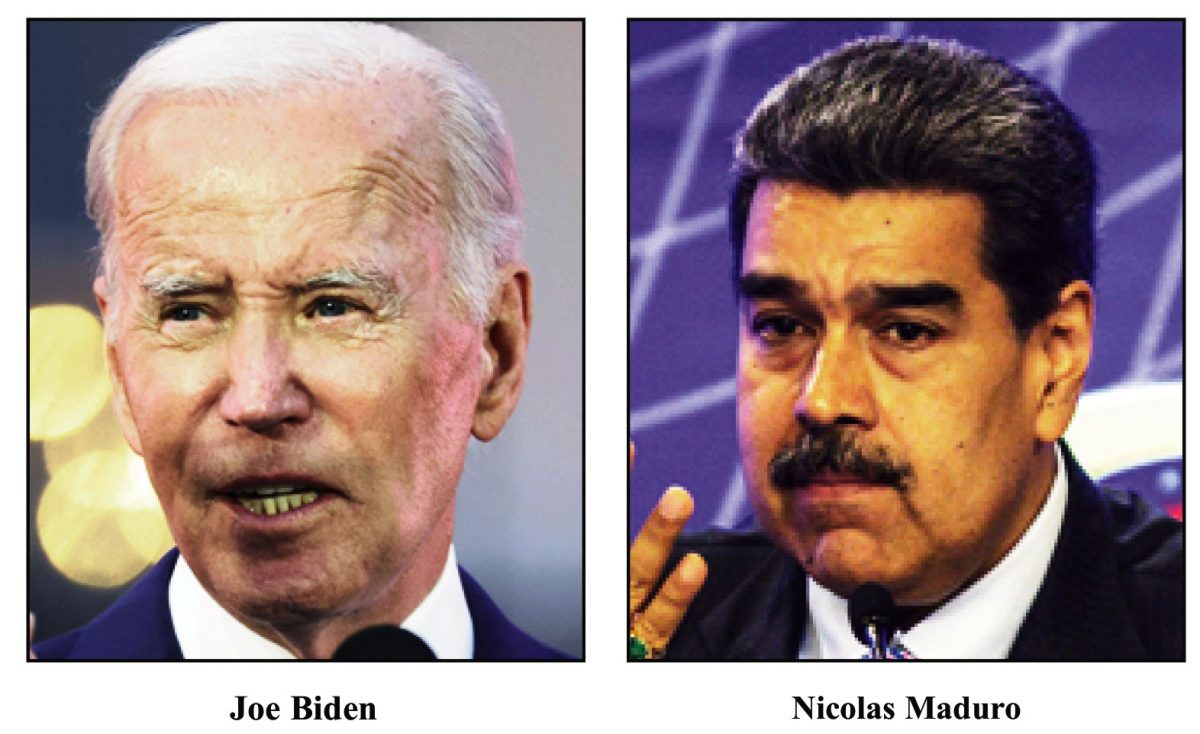The Biden administration in Washington appears determined to ensure that it does not entirely cut adrift Venezuela, the country reportedly possessing the largest volumes of oil anywhere in the world, even as it seeks to persuade the country’s President, Nicolas Maduro, that free and fair elections, when the country next goes to the polls would be in its best interests. It is against this backdrop – and in a pointed departure from the bullish posture of his predecessor – that US President Joe Biden has reportedly moved to engage the Madura administration. In the immediate term, Biden would appear to want to talk a deal with the Venezuelan President, a guarantee of free and fair elections when Venezuela next goes to the polls next year in exchange for removing the US sanctions that have crippled the country’s economy. At face value, at least, the proposed deal may well be a non-starter.
Recently, Venezuela’s Congress approved a new Electoral Board dominated by senior figures from the Maduro’s administration who are known to have played important roles in the country’s disputed 2019 elections, of which Maduro was declared the winner. The appointees to influential positions in the process that will have control over the procedures relating to the conduct of next year’s elections are unlikely to fill Washington with confidence that a deal can be done, President Maduro seemingly having pre-empted Washington by ensuring that the key figures responsible for managing the electoral process, being close allies of his, and two of whom are under sanctions from the US Congress. Accordingly, the signs, up to this time, would appear to suggest that Maduro is disinclined to ‘cut a deal’ with Washington in the matter of the conduct of the presidential elections scheduled to be held by 2024 to choose a President for a six-year term beginning in 2025.
Should the Biden deal be scuttled another Maduro administration may well find itself presiding over an economy that is even more scuttled than it has been up to this time. While stories emanating from sections on the international media suggest that Caracas and Washington may already be in talks on the idea of a temporary lifting of the sanctions under the deal touted by Washington, there have been no reliable reports up to this time of bilateral discourses in that regard. US sanctions have already badly hobbled Venezuela’s economy, saddling the Maduro administration with ‘rough rides’ in both the political and economic spheres of the country’s existence. If there have been confirmed reports of ‘the idea of talks’ between Caracas and Washington with preliminary reports suggesting that these involve senior officials from the two countries, there have been no reports of progress, one way or another.
Washington’s proposed ‘deal’ reportedly includes conditions that have to do with the release by the Maduro administration of political prisoners. If US sanctions have manifestly failed to remove the Maduro administration from office, what its economic squeeze has done is to help create a domestic socio-economic environment inside Venezuela that may well have seriously fractured the Venezuelan President’s political base. Opposition forces have, in recent times, assumed an increasingly assertive position in their opposition to the Maduro administration while the hugely negative impact of US sanctions on the country’s oil industry, coupled with what is believed to be widespread corruption in the sector, has not helped President Maduro’s political cause.
While sustained high-level political contact between Caracas and Moscow has sent a message that the Maduro administration remains unprepared to ‘fold’ under pressure from Washington, the US government is acutely aware of the fact that Venezuela can only take so much. That Venezuela’s oil and gas industry still looks to Washington for a considerable measure of support has been reflected in the Maduro administration’s undisguised welcome of Washington’s decision to allow the US oil company, CHEVRON to remain in Venezuela beyond the wider pullout of American oil companies from the country. CHEVRON has not only been integrally involved in key aspects of Venezuela’s oil production programme but has also been supporting the resuscitation of the reportedly badly hobbled Venezuelan state-run oil company, Petrobras.
That the Venezuelan oil sector continues to work with CHEVRON provides proof, if indeed proof is needed, that sanctions have badly damaged Venezuela’s once powerful energy industry whilst inflicting the severest of humanitarian crises on the country that was once responsible for the Petro Caribe deal that had allowed for an impoverished English-speaking Caribbean, including Guyana, to access Venezuelan oil on credit and at concessionary prices. Whether the deal, which is being sought by President Biden will ‘hold,’ depends on several factors. First, there is the issue of trust… Washington having previously accused Maduro of using previous general elections in Venezuela to incite violence and coerce voters and having further charged the administration in Caracas with misappropriating state funds, the issue of trust arises.
Here the pressure will be on the Maduro administration to make significant concessions though he is bound to be mindful that what Washington is seeking is the creation of a set of circumstances that will ensure his removal from office for good.






